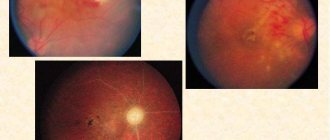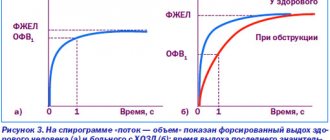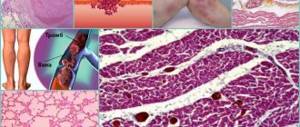Most scientists believe that Alzheimer's disease is spreading like an epidemic every year. According to 2014 data, the total number of patients worldwide was 36 million people, and by 2018 this figure began to exceed 50 million. This disease manifests itself in the form of disorders of brain activity: a progressive decline in intelligence and memory deterioration, as a result of which personality deformation occurs. These symptoms are actively progressive, so only a quarter of patients are aware of the situation in which they find themselves. Unfortunately, Alzheimer's disease is still incurable, but the manifestations of this disease can be reduced and even prevented. We have collected simple prevention measures that can be applied in everyday life.
Main manifestations
AD is a type of dementia characterized by disorders of memory, personality, and orientation in space and time.
Such deviations occur from changes in the cerebral cortex. They are just trying to establish the exact cause, but it is already clear that in the case of AD, insoluble proteins accumulate in the brain. The protein forms clusters that block the transmission of impulses between neurons. The pathological process begins long before the first signs of dementia appear. In the early stages, short bursts of confusion, forgetfulness, and disorientation already occur. But most often, patients do not attach significant importance to this, attributing the symptoms to fatigue or neuroses. As dementia progresses, its manifestations become more and more aggravated, and relatives or the patient himself turn to the doctor.
https://www.youtube.com/watch?v=cosamomglavnom
Alzheimer's disease is considered a disease of old and middle age. Precursors most often appear by the age of 55-60 years. The presenile form of asthma affects younger people - over 40 years old. The youngest patient in whom the disease was recognized was 28 years old. Also, earlier manifestations of AD are typical for people with Down syndrome; their symptoms are diagnosed at age 30, sometimes earlier.
Children and adolescents do not suffer from this type of dementia. But scientists strongly recommend monitoring suspicious signs at any age, since the pathology becomes “younger” with each passing decade. In order to see a doctor in time, you need to know what this disease looks like. You can recognize it by a gradual decrease in attention and memory deterioration, inability to learn new information. The patient experiences more and more difficulties in communication, choosing words, the meaning of some words “falls out” of memory.
A person may get lost in a familiar area, in the seasons or days of the week. Over time, personality decay is added to progressive amnesia. This process from initiation to tangible manifestations can take from several months to several years. Therefore, it is important to pay attention to even rare changes in behavior.
Both senile and presenile forms begin almost identically. Symptoms do not depend on the age of the patient. At the onset of the disease, absent-mindedness and inability to plan one’s activities appear, and cases of topographic cretinism become more frequent. With the progress of pathology, a person is increasingly less able to read and write, replacing words in speech with something like “this thing/thing.” Counting ability deteriorates.
The patient may hide his illness or not be aware of it at all. Therefore, observations by relatives are very important for early diagnosis.
Cognitive functions
The main problem of the disease is impaired cognitive abilities. These include memory, concentration, thinking and orientation in time and space. The first thing to suffer with AD is short-term memory: a person remembers his childhood and youth well, but has forgotten what he did in the morning. The process of degradation begins with more complex skills, such as professional ones, and moves towards elementary ones.
Alzheimer's disease is defined by the following cognitive impairments:
- Decreased concentration. When communicating or other information from the outside, there is “white noise” in the head; separate parts are isolated from the speech of strangers. It is difficult to transfer attention from one thing to another, to concentrate on one task for a long time.
- Difficulty in learning. New data is poorly absorbed and over time the patient is unable to learn anything at all. Old skills and information are also erased.
- Loss of short-term memory. Sometimes patients can completely retreat into the past, not remembering recent events. As the disease progresses, pictures of the past may remain or disappear.
- Disorientation. The patient does not recognize the area and may periodically get lost. Already at an early stage he needs accompaniment, and in moderate dementia it is very dangerous to let them leave the house. Disorientation also affects the sense of time. A person cannot understand what time of year it is, does not understand what year and month it is. As the disease progresses, such signs initially appear periodically and become more frequent over time.
- Difficulties in reading, writing, counting. First, letters are forgotten, handwriting changes, and when counting, the patient can change places of numbers. With progress, writing and counting skills completely disappear.
- Disturbances in thinking. This affects both abstract and logical thinking. In a conversation, there are increasingly meaningless and inappropriate events; the patient may go away from the topic in order to hide the “dropping out” of words. The sense of one’s own ego, awareness of the environment and the world are lost.
The rate of progression of the disease depends on the form of dementia, the patient’s condition, and standard of living. The full cycle from the beginning to the severe stage takes on average 7-10 years. Although with early diagnosis and quality treatment, life activity can be extended by 15 years or more. In the final stages, almost all cognitive functions are erased, the patient does not understand what is happening around. Due to the fact that he does not remember the meaning of words, the addresses of those around him are meaningless sounds.
Behavior
In addition to cognitive impairment, the patient’s personality also disintegrates. The character can change dramatically, sometimes the patient’s characteristics are simply aggravated. You can suspect a problem by frequent attacks of gloominess, tearfulness, and depressive mood. A once cheerful person turns into a grumpy brawler; it may seem to him that everyone around him wants to harm him.
Interests are narrowed around his own personality, the patient is concerned about his safety and health. Emotional memory for the environment disappears, the person still remembers his relatives, but attachments disappear. There are episodes where he does not recognize the faces of loved ones; as the pathology progresses, this becomes permanent.
A decrease in emotional experiences leads to a person becoming tactless, rude, and aggressive. It is easy for him to offend others, he says what he thinks, and can start a scandal in a public place without any particular reason. Behavior is increasingly dominated by lower drives. Instead of past hobbies and interests, the patient begins to eat a lot, and sometimes there is a craving for vagrancy and accumulation of rubbish. In previously active people, strongly expressed sexualization is noticeable; in combination with sexual impotence, this trait can take the most unpleasant forms.
As symptoms develop, sullen and aggressive behavior is replaced by carelessness. People become very suggestible, they like to give advice and remember the past. Patients in the stage of moderate dementia often resemble children in their behavior. They laugh for no reason, hum, and can whinily ask for something.
Brain training
With Alzheimer's pathology, a person's intellectual abilities are damaged, memory and spatial orientation problems appear, and even a person's personality changes. To maintain a “sound mind”, you need to constantly train your thinking. It has been scientifically proven that in people whose work involves mental activity, Alzheimer's syndrome is detected much less frequently.
Dementia develops infrequently in people who speak multiple languages and appears later than in other people with the disease. Learning foreign languages activates thought processes and memory, forming new connections between brain neurons. In addition, such an activity contributes to a person’s cultural education and opens access to new information.
You should get yourself some kind of hobby that requires active mental activity. Playing chess, participating in group sports, as well as golf and tennis help keep the brain toned. Reading books, playing music and writing also play an important role in preventing the decline of a person's intelligence.
Prevention of Alzheimer's disease, carried out in this way, will not burden the person at all, but will only bring pleasure and relieve stress. Therefore, such methods of preventing the development of pathology can and should be used by people regardless of age.
Alzheimer's disease - causes
Senile dementia of the Alzheimer's type, as the pathology in question is also called, develops according to mechanisms that have not yet been clarified. The most reliable theory of the origin of the disease, according to most experts, is the amyloid hypothesis. According to it, Alzheimer's disease is caused by the deposition of beta-amyloid in the brain tissue, a protein fragment that performs protective and trophic functions in the body. As a result, insoluble plaques and neurofibrillary tangles are formed, provoking the death of brain structures.
Alzheimer's disease: causes of the disease
Photo: thodonal88/Shutterstock.com
It is stated with a high degree of certainty that the main cause of Alzheimer's disease is amyloid deposits in brain tissue, causing disruption of neural connections and cell death, which leads to degeneration of the brain matter.
Amyloid deposits are formed in two variants. Amyloid plaques, which form first in the tissues of the hippocampus and then spread throughout the brain, prevent the organ from performing its functions. Amyloid increases the concentration of calcium in brain cells, which causes their death. The second type of deposits is neurofibrillary tangles, one of the discoveries of Alois Alzheimer. The tangles he discovered while studying the brain of a deceased patient consist of insoluble tau protein, which also disrupts normal brain functions.
The causes of deposits that lead to the development of Alzheimer's disease have not been precisely established. Neurodegenerative diseases of the brain have been known for a long time, but Alzheimer's disease was distinguished from a number of dementias in 1906 thanks to A. Alzheimer, who observed a patient with progressive symptoms for several years. In 1977, at a conference dedicated to the issues of degenerative diseases of the brain and cognitive disorders, Alzheimer's disease was singled out as an independent diagnosis due to the prevalence of the disease and the need to search for the causes of its development and methods of treatment. At the moment, there are a number of hypotheses and assumptions about the mechanism of occurrence of brain dysfunctions characteristic of this disease, and the principles of maintenance therapy for patients have been developed.
Cholinergic hypothesis of Alzheimer's disease
The first studies conducted to study the causes of the disease revealed a deficiency of the neurotransmitter acetylcholine in patients. Acetylcholine is the main neurotransmitter of the parasympathetic nervous system and takes part in the transmission of nerve impulses between cells. This hypothesis led to the creation of medications that restore the level of acetylcholine in the body. However, the drugs were ineffective in treating Alzheimer's disease; although they reduced the severity of symptoms, they did not slow down the progression of the disease. Currently, drugs in this group are used in the course of maintenance therapy for patients.
Amyloid hypothesis
The amyloid hypothesis, based on the destructive effect of beta-amyloid deposits on brain cells, is currently the main one. Despite the reliability of data on the action of beta-amyloid, the reason for its accumulation in brain tissue is unknown. Also, no drug has been created that prevents its accumulation or promotes the resorption of amyloid (senile) plaques. The created experimental vaccines and drugs aimed at cleansing brain tissue of excess beta-amyloid have not passed clinical trials.
Tau hypothesis
The tau hypothesis is based on the identification of neurofibrillary tangles in brain tissue that arise due to disturbances in the structure of the tau protein. This assumption about the causes of the development of Alzheimer's disease is recognized as relevant along with the hypothesis about amyloid deposits. The reasons for the violations have also not been identified.
Hereditary hypothesis
Thanks to many years of research, a genetic predisposition to Alzheimer's disease has been identified: the frequency of its development is much higher in people whose relatives suffered from this disease. The development of Alzheimer's disease is blamed on abnormalities on chromosomes 1, 14, 19 and 21. Mutations on chromosome 21 also lead to Down's disease, which has similar degenerative phenomena in the structures of the brain.
The most commonly genetically inherited type is “late” Alzheimer’s disease, which develops at the age of 65 years and older, but the “early” form also has genetic disorders in its etiology. Chromosomal abnormalities and inheritance of genome defects do not necessarily lead to the development of Alzheimer's disease. Genetic predisposition increases the risk of the disease, but does not cause it.
If there is a hereditary risk group, preventive measures are recommended, mainly related to maintaining a healthy lifestyle and active intellectual activity: mental work helps to create more neural connections, which helps the brain redistribute functions to other areas when some cells die, which reduces the likelihood of developing symptoms senile dementia.
First harbingers
The first prerequisites provide a chance for early diagnosis and effective therapy. The initial symptoms may be noticed by the patient himself. Based on the first characteristic signs, you can identify asthma in yourself or a loved one. What you should be wary of:
- Memory loss. A person’s dependence on written reminders grows; he does not fulfill what he promised because he forgot about it. Recent events are hard to remember. Memory loss extends to faces, events, dates. This does not include rare periodic forgetting, for example, if a person does not remember where he put his keys.
- Narrowing interests. Cases of apathy become more frequent, interest in one’s surroundings and usual activities disappears. A person gives up his hobby, is increasingly left alone, and even communication with his family becomes burdensome. This condition should not be confused with temporary exhaustion, if a person is burned out and needs rest. With asthma, such symptoms do not stop and only intensify over time.
- Disorientation. It is sometimes difficult to establish distance or depth, and a person may become confused on stairs or in familiar terrain. Difficulties appear with reading, recognizing faces and counting.
- Decreased communication. Increasingly, individual words are forgotten; during a conversation, the meaning of some words is not recognized. It is also difficult to express your thoughts in written or oral form. The logical chain in the conversation is lost.
- Personality changes. Grumpiness, anger, tearfulness and touchiness can also become harbingers of illness. If a person begins to change dramatically, he is suspicious and rude, although he used to be friendly - this is a reason to undergo an examination.
- Loss of acquired skills. A person forgets what he used to do well. This could be professional skills, inability to cook your signature dish, hobbies, etc.
It’s becoming more and more difficult to communicate with people and the desire to do so disappears in principle. For “some reason,” personal belongings end up in unexpected places: the refrigerator, oven, under the bed. You need to get diagnosed even if you have one of the symptoms. According to statistics, women experience asthma 2-3 times more often than men. This is primarily associated with the longer life expectancy of girls.
Features of symptoms at a young age
The disease is slowly progressive, and over time the intensity and number of its manifestations increases. The initial signs are often perceived as normal manifestations of age, the consequences of stress, overwork, and therefore are ignored in many cases. Further, Alzheimer's disease symptoms become more obvious, disrupting the daily life of not only the patients themselves, but also those close to them.
The onset of Alzheimer's disease often becomes apparent after the age of 65, although the first degenerative disorders in the brain structures appear 10-15 years earlier. Recently, there has been a trend toward “younger” pathology, which is diagnosed in people over 45 years of age.
1. The first stage is pre-dementia, expressed in the following manifestations:
- memory disorder associated with poor remembering of recently occurring events and new information with preservation of long-term memory;
- violation of semantic memory (about the meaning of words, their relationship, etc.);
- poor concentration;
- apathy;
- conflict;
- difficulties with planning activities;
- problems with logical and abstract thinking;
- loss of interest in favorite activities, cooling of friendly relations.
2. The second stage is early dementia, in which changes in the patient’s behavior become more obvious to others. The following signs are noted:
- worsening memory problems;
- violation of different types of perception;
- reduction in vocabulary;
- decreased speech rate;
- fine motor disorders.
3. The third is the stage of moderate dementia, characterized by significant cognitive impairment and the appearance of other pathological symptoms:
- confused, meaningless speech, distortion of words;
- loss of reading and writing skills;
- serious weakening of memory, when the patient no longer recognizes close relatives, long-term memory is also impaired;
- episodes of spontaneous aggression;
- irritability;
- tearfulness;
- progression of movement disorders;
- sleep disorders;
- urinary incontinence.
https://www.youtube.com/watch?v=https:tv.youtube.com
4. The last stage - Alzheimer's disease forces patients to be completely dependent on outside help, because... almost all self-care skills are lost. The clinical picture includes:
- loss of speech;
- constant apathy;
- physical exhaustion;
- difficulty moving up to complete immobilization.
Early dementia occurs by the age of 40; before this age it is extremely rare. If the first symptoms occur before the age of 65, they speak of a presenile form of dementia. She has her differences. Memory decreases gradually, but faster than in the senile form. The patient is able to maintain a “facade of personality” for a long time, since in early dementia, criticality remains for a longer period. A person realizes what is happening to him up to the point of total collapse and amnesia.
Differences in dementia at a young age: there is rarely a revival of the past, there is criticism of what is happening, amnesia is more stable and progresses faster, knowledge and skills are completely exhausted, speech is completely disrupted.
Unlike dementia, which occurs after age 65, with this type of disease the patient does not relapse into the past. In the initial stages, the patient may suffer from awareness of what is happening. Sometimes he tries to hide his condition.
The speech of others is understood only partially or not at all. The movements include meaningless and chaotic gestures, oral automatisms. In severe cases, a person cannot remember how to walk or stand up or sit without help. At the end of the pathology, the patient simply lies, remains silent or repeats incoherent syllables.
Alzheimer's disease: symptoms at different stages
Photo: goodluz/Shutterstock.com
Alzheimer's disease is a neurodegenerative disease in which brain cells die. This process is initially accompanied by impaired cognitive functions, and in later stages – by suppression of the functions of the entire organism. Despite the variability of symptoms depending on the patient’s personality, the general manifestations of the pathology are the same for everyone.
How to recognize Alzheimer's disease at an early stage?
The first signs of the disease
First of all, short-term memory suffers while long-term memory is preserved. Complaints from older people about forgetfulness and requests for the same information several times are quite typical both for age-related characteristics of brain functioning and for the first stages of Alzheimer's disease. In the presence of the disease, forgetfulness increases, it becomes difficult to process new information, to remember not only the location of familiar things, but also the names of relatives, your age, and basic information.
The second symptom of the early stage of the disease is apathy. Interest in usual forms of pastime decreases, it becomes more difficult to engage in your favorite hobby, leave the house for a walk, or meet with friends. Apathy reaches the point of loss of hygiene skills: patients stop brushing their teeth, washing, and changing clothes. Common symptoms also include speech disorders, starting with an attempt to remember a familiar word and ending with a complete inability to understand what was heard, read and the speech itself, isolation, distance from loved ones, disturbances in spatial orientation: difficulty recognizing places, losing the way home, etc. .
In men, the state of apathy is often replaced or alternates with increased aggression, provocative behavior, and sexual behavior disorders. Often, early diagnosis of the disease is impossible, since the patients themselves are not aware of the symptoms of the onset of the pathological process or attribute them to manifestations of fatigue and stress. One of the common mistakes at this stage is trying to “relieve tension and relax” with alcohol: alcohol-containing drinks significantly accelerate the death of brain cells and cause increased symptoms.
Stages of Alzheimer's disease
Alzheimer's disease attacks brain tissue, leading to progressive cell death. The process begins in the hippocampus, which is responsible for remembering and using accumulated information, and spreads to other departments. Damage to the cerebral cortex causes cognitive impairment: logical thinking and the ability to plan suffer.
Massive cell death leads to “shrinkage” of the brain, reducing its size. With the progress of Alzheimer's disease, the disease leads to complete degradation of brain functions: the patient is not capable of self-care, cannot walk, sit, eat independently, and in later stages - chew and swallow food. There are several classifications of the stages of development of Alzheimer's disease. The most common stage of the disease is divided into four stages.
Early stage: pre-dementia
This stage precedes the pronounced clinical picture of the disease. When making a diagnosis based on obvious symptoms, the patients themselves and their relatives recall that the first signs of Alzheimer’s disease had already appeared for several years (8 on average), but they were attributed to the consequences of fatigue, stress, age-related decline in memory processes, etc. The main symptom of this stage is short-term memory impairment: the inability to remember a short list of products to buy in a store, a list of activities for the day, etc. The ever-increasing need for entries in a diary, smartphone, progressive everyday forgetfulness, as well as a decrease in the number of interests should be alarming. increasing apathy, desire for isolation.
Early dementia
It is at this stage that a clinical diagnosis most often occurs. The destruction of brain cells and neural connections spreads from the hippocampus to other parts of the brain, symptoms increase, it becomes impossible to attribute them to the influence of fatigue or overexertion, patients themselves or with the assistance of relatives consult a doctor. Memory impairment and apathy are accompanied by new symptoms, most often at the first stage associated with speech: the patient forgets the names of objects and/or confuses words that sound similar but have different meanings. Motor impairments are added: handwriting deteriorates, it becomes difficult to put things on a shelf, in a bag, or prepare food. The general impression of slowness and clumsiness is due to degeneration and death of cells in the brain cell responsible for fine motor skills. As a rule, at this stage, most people cope with most household tasks and do not lose self-care skills, but from time to time they may need help in performing usual tasks.
Stage of moderate dementia
The stage of moderate dementia in Alzheimer's disease is characterized by an increase in symptoms of the disease. There are pronounced signs of senile dementia and disturbances in mental processes: difficulties in building logical connections, planning (for example, inability to dress in accordance with the weather). Spatial orientation is disrupted, patients, once outside the house, cannot understand where they are, which, together with short-term and long-term memory impairments characteristic of this stage, leads to the inability to remember how a person got to this place and where he lives, how the names of his family and himself. Impaired long-term memory leads to forgetting the names and faces of relatives and one’s own passport details. Short-term memory is reduced so much that patients do not remember eating a few minutes ago, and forget to turn off the lights, water, and gas. Speech skills are lost, patients have difficulty remembering and choosing words for everyday speech, and reading and writing abilities decrease or disappear. There are pronounced fluctuations in mood: apathy is replaced by irritation and aggression. Patients at this stage require constant supervision, although some self-care abilities are still retained.
Severe dementia
Alzheimer's disease in the stage of severe dementia is characterized by a complete loss of the ability to self-care, independent nutrition, the inability to control physiological processes (urinary and fecal incontinence), almost complete loss of speech, progressing to a complete loss of the ability to move and swallow.
Patients require constant care; at the final stage, nutrition is supplied through a gastric tube.
Alzheimer's disease itself is not fatal. Most often, the cause of death is pneumonia, septic, necrotic processes due to the appearance of bedsores, and the addition of diseases of a different etiology to Alzheimer's disease, depending on the individual characteristics of the person.
Signs of the last stage
Confusion, forgetfulness and difficulties with orientation only get worse over time. The disintegration of personality and the progress of amnesia continues. In the final stages of the disease, a person can no longer cope without the help of strangers. Due to the complexity of caring for such patients, loved ones are often forced to send them to specialized institutions. It is impossible not to notice the disease at this stage.
A patient with asthma in the last phase no longer recognizes his relatives and does not understand what is happening around him. Even automated skills disappear, such as the ability to dress, eat, bathe, or go to the toilet on your own. Patients with senile dementia are characterized by relapse into the past and slower amnesia. In the presenile form, the patient progresses into sullenness and silence.
In speech there are “fragments” of words, repetition of individual syllables. In the senile form, vocabulary can be preserved, but without a logical chain in the conversation. The speech of others loses its meaning, the patient does not respond to requests or other information. By the end of the pathology, the patient either simply lies down or takes a fetal position. Patients lose weight, there is bulimia, and infections occur.
Alzheimer's disease - treatment
Since it is not yet possible to cure the pathology, therapy is aimed at alleviating the course, slightly slowing down the progression and improving the patient’s quality of life, in which psychosocial techniques play an important role. The latter include:
- music therapy – patients are played music that evokes positive emotions, associations with moments from childhood and adolescence;
- art therapy – classes in simple forms of art (drawing, modeling);
- sensory integration – involving the patient in simple housework, stimulating physical activity;
- encouragement for intellectual activity - solving crosswords, reading, memorizing words and phrases, etc.
When caring for a patient, you should adhere to the following recommendations:
- caring and tolerant attitude;
- timely provision of all vital functions;
- creating comfortable living conditions;
- adherence to daily routine;
- prevention of complications.
For patients diagnosed with Alzheimer's disease, the following medications may be prescribed for treatment:
- cholinesterase inhibitors (Razadin, Aricept, Exelon) – prevent the breakdown of the neurotransmitter acetylcholine;
- partial glutamate antagonists (Memantine) - to reduce the level of the main excitatory neurotransmitter of the brain, which causes damage to nerve cells;
- neuroleptics (Aminazine, Haloperidol, Clozapine) - to eliminate psychopathic and neurotic conditions;
- tranquilizers (Imovan, Buspirone) - to eliminate anxiety and reduce emotional stress;
- antidepressants (Prozac, Anafanil, Sertraline) – stop attacks of aggression, panic attacks.
Alzheimer's disease, which is treated at home according to regimens prescribed by a doctor, does not exclude the use of traditional methods to alleviate the disease. Thus, many patients may be recommended drugs that improve blood flow, nutrition of the brain, and increase body tone:
- tincture of ginseng root;
- Aralia tincture;
- tincture of Dioscorea Caucasica, etc.
https://www.youtube.com/watch?v=ytadvertise
Treatment of Alzheimer's disease at an early stage is the key to stopping its rapid progression and prolonging the patient's life. Scientists continue to search for effective treatment methods, and some of the most advanced at the moment include:
- stem cell implantation;
- introduction of nanoparticles that bind and destroy protein plaques;
- the use of antibody drugs that activate immunity against amyloid peptides.
Characteristic signs in old age
If the disease is detected at a more mature age, usually after 65 years, they speak of senile dementia. It differs from the previous form in that it progresses slowly. It is characterized by a more persistent personality disintegration. If at a young age a person’s memory suffers more, then in this case personal changes are most noticeable.
Dementia in old age is characterized by:
- slower and milder progression of amnesia;
- pronounced disintegration and change of personality;
- lack of criticism;
- reviving the past;
- partial depletion of vocabulary.
Patients are characterized by a combination of reality and the past, replacement of events and persons. A person may mistake loved ones for old acquaintances and people from the past. He may also consider himself much younger than he actually is. From the first stages, everything new is not perceived by him or is considered as a threat.
The change in behavior is more dramatic. As in presenile form, the circle of interests gradually narrows around one’s personality. The patient constantly feels that they want to rob him, kill him, offend him, or abandon him. Previous attachments to people quickly disappear, but in this case a person can remember his family and recognize himself longer. The mood in the first phases is picky and dissatisfied, but over time it becomes complacent and trusting.
The lower instincts greatly prevail over the others. A person constantly experiences feelings of hunger and lust, and inappropriate hypersexuality appears. The patient likes to teach and make comments, talk about nothing. There are attacks of speech pressure with switching from topic to topic. In a good mood they can sing and laugh.
The last stage is insanity. The patient spends most of his time in the fetal position. Shows no interest in anything. A complete breakdown of speech does not occur; a rich vocabulary can be preserved until the last moment. Unlike presenile dementia, there are no neurological disorders in this case.
Prevention of Alzheimer's disease
There are no treatments that can prevent Alzheimer's disease in women, but maintaining a healthy lifestyle can significantly reduce the risk of this disease. The main recommendations are as follows:
- balanced diet;
- physical activity;
- giving up alcohol and smoking;
- intellectual activity;
- control of blood pressure and body weight.
A large number of diagnostic tests have been developed, thanks to which senile dementia can be detected in the initial stages. Many of them can be done at home. For example, you can ask a person to draw with a pen on paper the dial of a clock, the hands of which indicate a certain time.
Alzheimer's Disease: Symptom Check and Clinical Manifestations
You can check the symptoms of an impending disease at home. To do this, you need to take a close look at changes in the behavior and mood of a loved one, analyzing the data obtained.
If at least one of the symptoms listed below has been identified, then you need to visit a neurologist.
- Memory impairment.
A person becomes forgetful, and important things and ideas have to be written down, as they simply fly out of the head. It happens that the events of ten years ago clearly remain in the memory in the smallest detail, but it is not possible to remember who came to visit yesterday.
- Disorientation.
It is a loss in time and space. Your close relative suddenly no longer understands time, cannot determine what time of year it is, gives the wrong age and today’s date, being mistaken by many years. He can easily get lost while walking along his usual route, for example, when going to the nearest store.
- Having difficulties when performing actions that require consistency.
Your grandmother always delighted her family with delicious pies, but now she can’t cope with the preparation, constantly getting confused in the recipe. For many years she was fond of needlework and suddenly “forgot how” to hold her knitting needles correctly, her favorite pastime became inaccessible to her.
- Impaired speech and writing.
We noticed that a person who previously had a good command of the syllable began to have difficulty explaining himself, forgetting the names of objects. The same applies to writing. Such people suddenly lose the ability to transfer their thoughts onto paper, although they previously could have been writers and poets.
- Loss of “sobriety of mind.”
One of your parents has become gullible and has lost the ability to reason sensibly. You can notice this by his rash actions. A person began to succumb to advertising, buying useless goods, easily falling for the tricks of scammers, sending money to their phone numbers, etc.
- Distraction and lack of order in the house.
If your mother has always strictly monitored the order in the house, and now you notice that things are in unusual places, and she herself can hardly find the right item, then the symptom of the disease is obvious. Especially if objects are found in rather strange places (socks in the microwave), and mom thinks that someone put them there, but not her.
- Alzheimer's disease causes disturbances in a person's emotional background.
As the disease progresses, your mood only changes for the worse. Cheerful people suddenly become angry and aggressive, pouring out their negative emotions on a loved one. Often, they choose one person as such a “victim,” for example, one of their children or siblings. This man is having a very hard time. He, who has Alzheimer's disease, can be accused of all mortal sins, including attempted murder. It often seems to such people that they are being persecuted, that they want to poison, kill, etc. Sometimes those suffering from this disease abandon all their usual activities and live, constantly struggling with imaginary fears.
Prevention of Alzheimer's disease is so far the only method to prevent or stop pathological changes in the brain.











